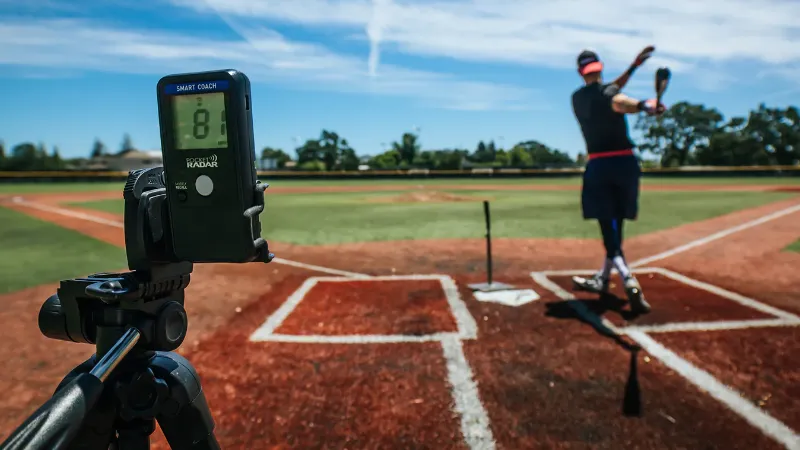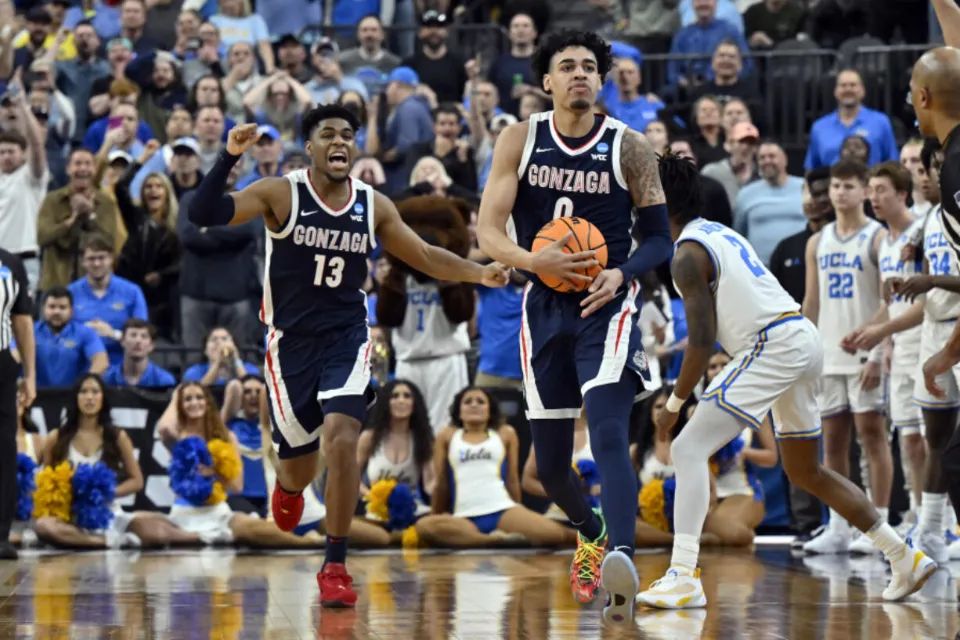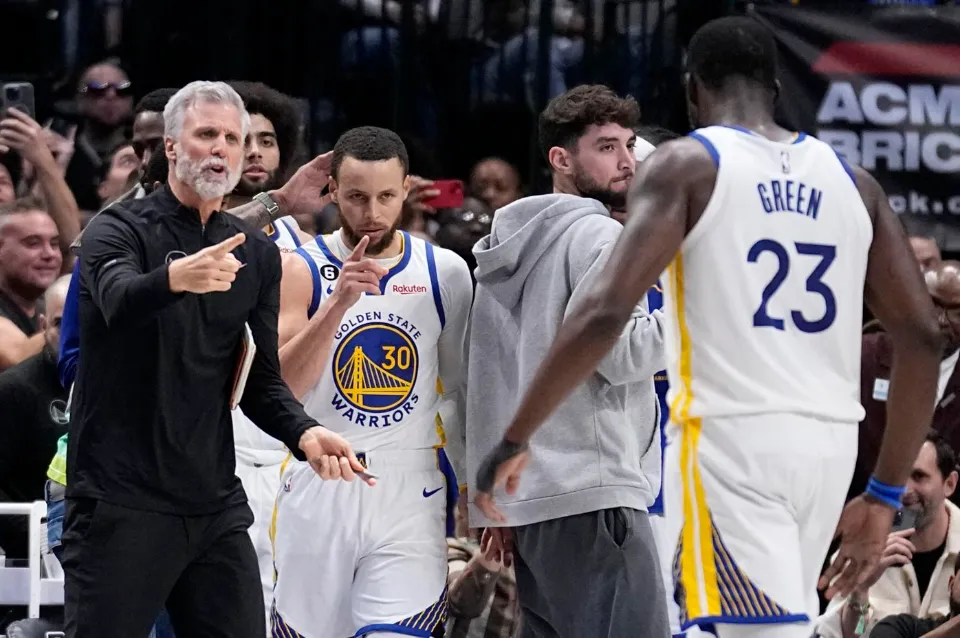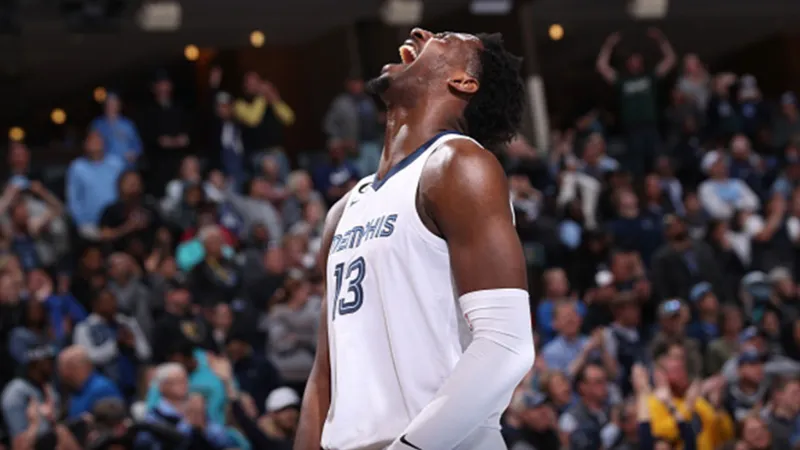How to Get Recruited for College Football? Tips Will Help You a Lot!
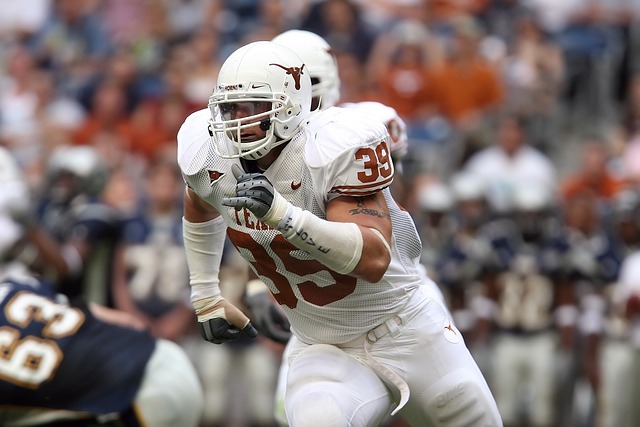
Since you can remember, you have always wanted to play college football. But it’s not as simple as you thought it would be now that you’re in high school. It’s good to know that you’re not by yourself. Knowing how to get recruited for college football is not as challenging as you once believed; all you need is a little extra assistance.
- Tips for Getting Recruited for College Football
- Eat Well
- Take the Proper Classes
- Do Research
- Create An Account With the NCAA Clearinghouse
- Focus on Your Grades
- Go to the Weight Room
- Schedule An Appointment With the School’s Guidance Counselor
- Some Highlights from Hudl
- Get Familiar With the FAFSA Application Procedure
- Take the Approved Required Courses
- Create Your Highlight Film on Hudl
- Understand How the Recruiting Process Works
- Get in Touch With College Coaches
- Attend the University One-Day Football Camp
- Train and Practice Smart and Hard
- Be Patient
- Be Realistic
- A Few College Football Recruiting Facts
- When Does Recruiting Start for Football
- Conclusion
Tips for Getting Recruited for College Football
Eat Well
Eating a filling burger and fries might be effective in high school, but it won’t always be effective in college. Adding muscle mass, not body fat, is what is meant by “bulking up” depending on your perspective. Nutritionists with extensive training who work for the NCAA monitor your calorie intake. The coaches are always looking into new ways to help the athletes’ bodies. Exercise and a weight-training regimen will be required of you, along with a healthy diet and eight hours of sleep each night. Your healthiest course of action in high school is to find a sports trainer and enhance your diet. Online resources are plentiful if hiring a trainer is out of your price range.
Take the Proper Classes
Your eligibility for the NCAA may be impacted by the classes you take during your freshman year of high school. Maintaining up-to-date is crucial to ensuring that you meet all of the requirements by the start of your senior year of high school because eligibility requirements are constantly changing. Over the course of your four years in high school, forge a close relationship with your guidance counselor and let them assist you in choosing your courses. To make sure you take the right classes, be sure to ask your counselor for a list of the NCAA core courses offered by your high school.
Read about How Does the NCAA Baseball Tournament Work?
Do Research
Decide what qualities you are seeking in a school before you visit campuses. A large scholarship may at times cause athletes to lose sight of what really matters. Verify that the institution satisfies your needs (i.e., degree program, class size, location, culture, facilities, etc.). Consider whether you want to play outside the NCAA or attend a DI, II, or III university. After you’ve whittled down your list and determined what’s important to you, look into the football programs. Discover the coaches’ names and see if the LRT website contains any ratings or reviews for them. The size of the football roster and their performance are two things you should consider. The coach will see that you are interested in their program if you have some knowledge of the prospective school.
Create An Account With the NCAA Clearinghouse
In order to get recruited for college football, you must first register with the NCAA clearinghouse. The NCAA requires that you register if you intend to compete at Division I or Division II levels of the NCAA. To sign up for their clearinghouse, you must visit the NCAA’s website (www.ncaa.com). To play at Division I or II levels of competition, you must complete this procedure in order to receive certification from the NCAA.
There is a registration fee, but if your household lacks the necessary funds, there is a way to get this fee waived. Even if you are unsure of which level or whether you will play Division III, you can still create a profile page on the website.
Focus on Your Grades
The junior year is often cited by students as being the most difficult one they have ever had in school. Most of the time, their schedule is full of classes. No grace periods are offered. Now is the time to put your attention solely on your grades. Keep up with any classes you may be struggling in, seek additional tutoring if required, and stay in regular contact with your instructor.
Go to the Weight Room
The spring is the time when you can grow bigger, stronger, and more agile. Make working out in the weight room a priority. Your strength and speed will be the distinguishing qualities that set you apart from the competition if you’re serious about elevating your football game.
Watch your attendance with vigilance. If you are also participating in another sport, don’t worry. The majority of college coaches recognize the many benefits of participating in a variety of sports and want their student-athletes to have a diverse range of interests and abilities.
Schedule An Appointment With the School’s Guidance Counselor
To make sure everything is in line with your four-year high school plan, speak with the guidance counselor at your school. Verify that you are registered for the classes you need in order to compete in the NCAA. Certain academic institutions have a thorough understanding of the requirements you must fulfill. You might need to spend more time with your counselors to ensure your eligibility, though, if your school does not frequently send students to programs offered by the NCAA.
Nothing is worse than learning your senior year is coming to a close that you are ineligible because a summer school course you took at a nearby charter school is not NCAA-certified. You may lose your eligibility for a number of opportunities, such as college scholarships, as a result.
Some Highlights from Hudl
The ability to demonstrate your playing potential is a crucial component of how to get recruited for college football. You should begin compiling your highlights on Hudl as soon as possible if you are a junior and have not yet done so. A highlight video of your best performances should be sent to your high school coach. College coaches are constantly looking for talented athletes to recruit.
Athletes can now easily share their videos with coaches thanks to Hudl’s fantastic platform. Make sure to allot enough time to producing a top-notch highlight video. Be sure to ask your coach what they think about the situation. He will typically be aware of what college coaches prefer to see and what they don’t.
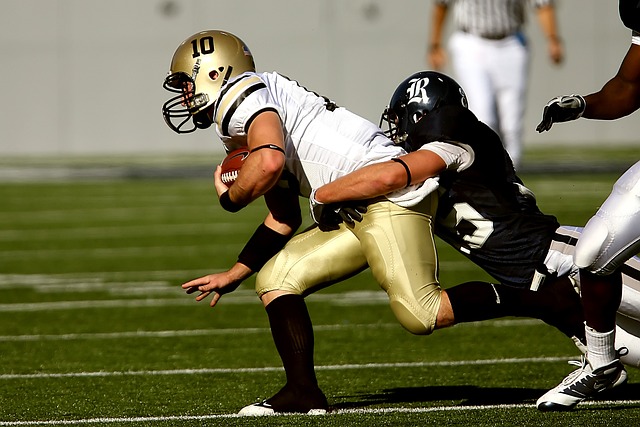
Get Familiar With the FAFSA Application Procedure
To be eligible for financial assistance, you must submit a document known as the FAFSA stands for Free Application for Federal Student Aid. You must still complete this form even if you receive a scholarship that covers the cost of your entire education.
Even though you won’t submit the FAFSA until your senior year of high school, it is a smart idea to start learning about this application process, especially with your parents. Your parents or legal guardians will undoubtedly need to help you because you will need to get documents from them regarding taxes and more.
Take the Approved Required Courses
Each high school football player must pass a certain number of math, english, science, and social science courses to be accepted.
Check with your guidance counselor to see if every course you’ve taken satisfies the NCAA’s standards for core courses. All high school football players must successfully complete 10 of the 16 required core courses by the end of their junior year.
Create Your Highlight Film on Hudl
You want to impress college coaches with your skills. You might be unsure of where to start when making your highlight film. When I was making my highlight video, I know that I had no idea what college coaches were looking for. Always include your name, phone number, email address, position(s), grade point average (GPA), and test results when making your highlight video.
Additionally, make sure to put yourself in the spotlight on each play in your highlight video. Coaches won’t have time to watch your highlight video if it is longer than 10 minutes. Instead of having to look and guess where you are on each play, highlighting yourself on each play makes it simpler for the coaches to assess you and know where you are on each play.
Understand How the Recruiting Process Works
During the recruiting process, college football coaches are required to abide by certain rules. They can get in touch with you at any time, and in a variety of ways.
You shouldn’t contact coaches if they aren’t permitted to contact you at that particular time. The better your chances are of being offered a football scholarship, the more you will comprehend how the recruiting process operates.
Get in Touch With College Coaches
Nowadays, there are a lot of text messages, emails, and social media, which has a big impact on recruiting. Contacting college football coaches directly is a great way to establish a connection with a program. According to dependable research, the typical college coach only gets 10 or fewer phone calls from recruits per week.
Make the time to speak with college coaches today. Being different from the other recruits and attracting attention is a fantastic way to do it!
Attend the University One-Day Football Camp
The best way for you to be seen by college football coaches and to be recruited is through this. When you decide to travel to each university to participate in their one- or three-day football camp, you must make travel arrangements.
Every college football program holds a one-day camp in addition to other camps that last a few days. For college coaches, this is the best recruiting tool. This allows for the opportunity for football coaches to personally evaluate each recruit. Universities that host challenging one-day football camps include the Ohio State Buckeyes, Oregon Ducks, Oklahoma Sooners, Alabama Crimson Tide, and Oklahoma Sooners.
Showing off your skills and talents on a college football coach’s campus is the best way to get their attention. What better way is there for you to determine whether or not that school is the right fit for you?
According to Alabama Head Coach Nick Saban, he said, “See the guy in person, it’s important. The head coach’s inability to conduct spring recruiting has significantly diminished as a result. I can only see a guy if they visit our camp, which is the only way I can see them.”
Football camps enable the coaches at that school to get a close-up look at you so they can immediately see your football skills and athleticism, which is why they can assist you in getting a college football scholarship. In addition, they’ll be examining your conduct, play reactions, work ethic, and leadership abilities. As football camps have grown in popularity, more college football coaches are delaying offering athletes spots until they can meet them in person. It is crucial that you go to as many camps as you can because of this.
Train and Practice Smart and Hard
Working on your speed, agility, and explosiveness during the offseason will help you get ready to compete against the best football players in the nation.
It’s simple to get sucked into only concentrating on getting stronger and weightlifting as a high school athlete. While it goes without saying that you should never neglect your football-related strength training, if you don’t work on improving your explosive speed and agility, you’ll fall behind when you attend a college football camp.
By preparing your athleticism in the offseason will get you on the right track for a long successful football career
Be Patient
During the hiring process, be patient. If you don’t hear back from a coach for a while, don’t get discouraged. Additionally, refrain from messaging the coach repeatedly. If they don’t respond right away, be patient and wait a few days.
After a few days or a week, you can follow up with another message. Send your first message at 6 p.m. their time, and then try again at a different time, preferably two hours before or after, to catch them at a better time. Be mindful of the time you send your messages; avoid sending them at midnight.
If you speak with their coach, be sure to inquire about the best way to stay in touch with them and whether another channel of communication would make it simpler for you to inform them of new highlight videos or other recruiting-related developments.
Be Realistic
You should be realistic as a high school football student-athlete and focus on the college football programs that will be the best fits for you. Naturally, you might want to enroll in an SEC or top 5 major program.
Setting objectives and aiming high are both valid strategies. It’s wise to consider all of your options and find out which colleges will give you the best chance to play college football after that.
To complete your four years of education and succeed, you should pick the university that will be the best fit for you.
Read about
A Few College Football Recruiting Facts
In all of college athletics, football is the sport with the most scholarships. In the US, there are over 80,000 college football players playing on close to 900 college football teams.
After high school, there is a 7% chance that you will play football in college. Even more specifically, the likelihood of playing Division 1 football is just 3%.
How will you fulfill your ambition to play college football given the stacked deck against you?
You must always be one step ahead of the competition if you really want to play Division 1 college football.
When Does Recruiting Start for Football
Football recruiting begins the day you decide you want to play in college. You are now in charge of completing the tasks on the field, in the classroom, and in the weight room.
Once you’ve made this choice, you can move on to finish some of the other requirements for a successful hiring process. This includes looking into camps and showcases, creating a highlight video, and researching colleges. In most cases, this work will be done in your first and second years of high school.
Remember that there is a difference between when you should start the recruiting process and when you should anticipate hearing from college coaches as we begin to introduce dates. Before they even enter high school, the best athletes will start receiving calls from coaches.
However, if you’re like most recruits, D1 football coaches won’t start contacting you until your sophomore or junior year of high school. By the end of your junior year or the beginning of your senior year, the majority of their rosters will be filled for your recruiting class.
Before you are a junior or senior, coaches from D2, D3, NJCAA, and NAIA typically start actively recruiting you. They typically pursue recruits who haven’t been picked up, which causes them to recruit later than D1 programs.
For this reason alone, many talented candidates need a little extra help in the hiring process because they frequently fall through the cracks (perhaps even you). You will have more opportunities and a better chance of success the earlier you begin.
Conclusion
It takes a lot of work to play football in college. It is crucial to comprehend how the recruiting process works in college football for this reason.
In total, there are more than a million high school football players in the country. Just 7% of them will continue playing at a higher level.
For the help you require right now, I advise you to look over the college recruiting handbook. It contains all the information a parent or student-athlete needs to secure offers to play college football.
Thanks for reading!
